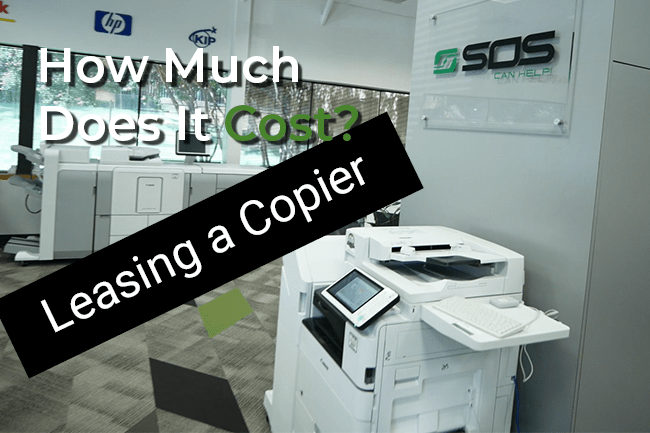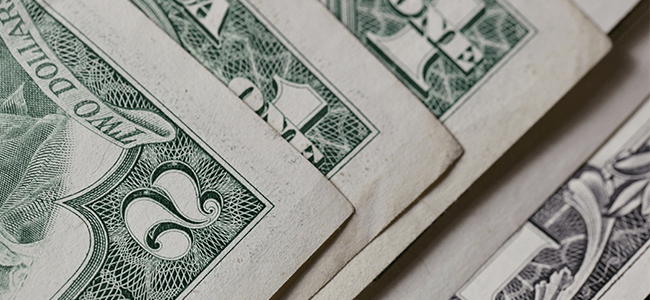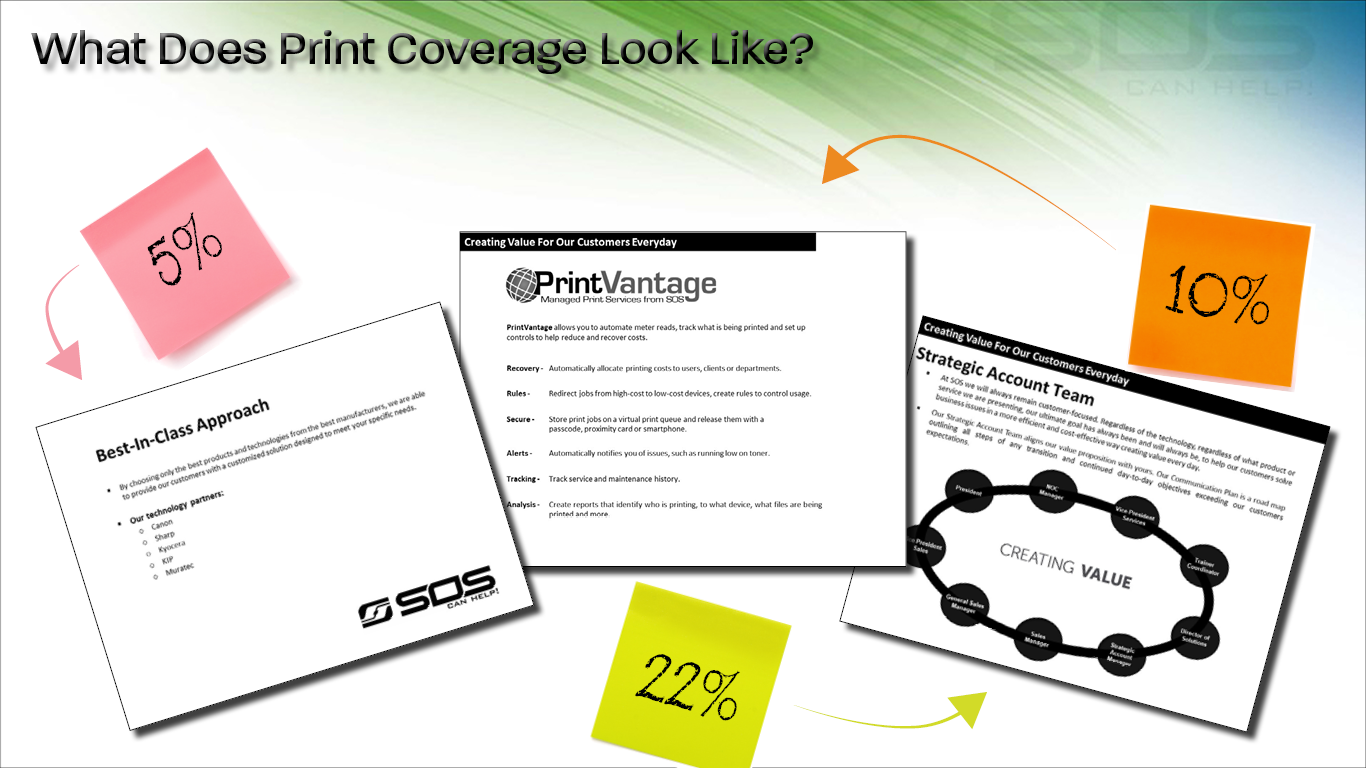
10 MIN READ | OFFICE COPIER COST
It's a question that seems pretty straight forward. How much does it cost to lease a copier? You type it into a search engine looking for an answer and you discover that very few places seem to want to answer your question fully. If you haven't purchased one before or it's been a few years since your last purchase, things have changed.
You look to the right of the results page and see some machines listed at various prices, but if you're like me, you start to ask important questions like: "If my machine breaks down, who's going to fix it?" and "What does that cost?"
Today, you're in luck. I'm going to break down all of the price considerations needed to make an informed decision so that when you reach out to make a purchase or ask for a quote, you don't experience sticker shock.
Leasing or purchasing a copier can be affordable if you know what you're doing. This blog will teach you how to shop for one in 2021.
Not a lot of time? Skip to what you need:
What Should I Consider When Purchasing a Copier?
Copier Cost Considerations
How Copiers Save Offices Money
How Do I Choose a Copier Vendor?
What Should I Consider When Purchasing a Copier?
At lot has changed in two years. Prices for office copiers have changed a bit, as well.
If you haven't purchased one before or it's been a few years since your last purchase, things have changed. In fact, we wrote an article on this topic in 2017, but enough changed that we decided to publish an update.
So, why is it so difficult to get straightforward answers on copier cost questions?
Because the answer to the question depends on a variety of factors. You might think copiers haven't change a whole lot over the years, but the reality is that the manufacturers make significant improvements, often.

Consider a car purchase.
When you purchase a car, you weigh a variety of factors:
- Price
- Make and Model
- Features
- New vs. Used
- Maintenance Costs
As you can imagine, the considerations for your copier are very similar. After all, there's a big price difference between the Kia Sorento and the Mercedes-Benz GLS.
There's also a big difference on the features and service you receive with each, as well.
But not everyone needs a brand new high-end SUV, and likewise, not everyone needs a high-end copier. Your budget is the most important consideration, but making sure your machine does what you need it to do also has to be a top priority.
There's no point in purchasing a copier that can't complete the necessary functions required of your business.
Let's breakdown the costs associated with the following considerations:
- Equipment/Hardware
- Features
- Black and White vs Color Copies
- Service
Later, we'll discuss new copiers vs used copiers, as well as choosing to work directly with the copier manufacturer or dealer.
Copier Cost Considerations

--The following numbers are total costs for individuals wishing to purchase a machine outright and do not include higher end production printers. Prices may vary between vendors, however, this guide can serve as a typical range.
Copier Equipment/Hardware Costs ($2,500 - $60,000+):
That's a lot of money! Luckily, most service companies offer lease programs where you can make reasonable payments each month on your office copier. We will talk about the benefits of a lease program later in the article.
Your hardware (what model of copier you choose) is very important to consider. Ensuring that your copier will be able to keep up with the demand you place on it is as important a consideration as the overall price.
Why?
Because if your machine can only handle 100,000 impressions (pages) before service, but you need to run 500,000 impressions every month, you may spend more money on servicing the machine than the upgraded model would have cost you.
A combination of copier model upgrades and/or additional units can be the solution to a volume problem. Convenience often factors into the equation here, but finding an appropriate balance will best serve the needs of your budget.
Features ($200-$2,000):
OK, you've picked the machine(s) that can handle the monthly volume your office requires. Now what?
Making copies is great, but most offices require more than basic copy functions. There's a reason copiers are now technically referred to as multi-function printers, and it's because they offer so much more than a single function to users.
Copiers can send emails, scan documents directly to shared folders and edit documents directly from their displays. Some can even intuitively sort individual receipts scanned during the same job, and all offer significant upgrades to their security.
Features that you should consider include:
- Finishers: staplers or corner folders; a necessity for most offices that does not come standard on machines
- Hole Punch: most are available in single or triple whole punches depending on what is required by the user
- Letter Folding: the ability to fold letters/documents, increasing efficiency in your office by not wasting time on simple manual labor
- Booklet Making: a combination of various features that allow small booklets to be created through folding, hole punch, and stapling features
- Faxing: older technology that is still commonly used by firms transmitting a great deal of sensitive information (ex: hospitals, law office, CPA's, etc.)
- Large Capacity Paper Tray: increases the standard capacity of the tray to allow for more reams of paper to be loaded, increasing office efficiency
- Document Feeder: a necessity for most copier users, document feeders can be configured to include single pass and reversing options
- Fiery: an important add-on for organizations in need of the highest level of color matching available for their print media
- Card Readers: allows for security cards to be implemented for users to gain access to a machine, particularly helpful in situations where security must be higher or department spending is more closely tracked
- Follow-Me-Printing: the ability to create a print job from a desktop computer or smartphone and release the job from any machine connected within an organization's network
- Software Upgrades: this may include popular software like:
- e-Copy
- Uniflow
- Drive
- Infodynamics
Black and White vs. Color Copies:
It's probably no surprise that there is a substantial difference between the cost of color copies and black and white. Why is that?
Color copies require more variations of toner to make the variety of colors required. Color toner also isn't sold in as large of quantities as black and white, so it's more expensive for manufacturers to produce.
Black and white copies are fractions of a penny per copy, where as color copies can be a few cents per copy, so you have to carefully evaluate whether or not color is what your business requires. Maybe a combination of mono (black and white) and color copiers is the better solution.
Service ($0.01-$0.10 per page):
Copier service pricing can vary widely from dealer to dealer, and even wider from dealer to manufacturer (more on that in another section). The big difference here occurs when comparing different machines.
I know what you're thinking: service is service, right? Yes and no.
It's very possible for smaller, less expensive machines to ultimately cost more than a larger and more expensive machine. As an example, pretend you're comparing the overall costs of two machines that can each meet your business needs.
One machine is smaller and less expensive with a monthly lease cost of $170. The other machine is larger, has a quicker production speed, and has a monthly cost of $280. It would make sense to purchase the cheaper machine if you know it can cover your needs.
When you compare just the cost of one machine to another, yes! But we aren't just talking about the sticker price of the machine. We're also talking about a machine's efficiency.
Simply put - smaller machines breakdown more often, causing higher service costs. Dealers typically include service with the per-print costs, but your per-print cost will often be higher with a less efficient machine because the vendor knows that it's going to need service more often.
The difference can be several hundred dollars more per month, per machine (more on that in the next section)!
Older or used copier machines can also have higher service costs, but there may be significant value in saving on the equipment purchase. Ultimately, it comes down to a business' needs. Just make sure you know how many copies have been made on a used machine before purchase (the vendor will be able to show you that on the display screen).
Remember, copiers are like cars. High copies are the equivalent to high miles and you should do your research on what an appropriate number of copies is for that model based on the year it was built.
How Copiers Save Offices Money
The information in the prior section creates some large totals. So how can leasing a copier save a company money?
Many companies attempt to solve this problem by employing an army of desktop printers. Whether they are inkjet or toner-based, they simply can't match the efficiency of a copier.
Let's break this down in two parts:
Inkjet vs Toner Printing
If you've ever been to an office supply store and purchased an ink cartridge, you may have noticed the page-yield on the side of the box. Page-yield simply means the estimated number of pages that a cartridge can be expected to print.
What most people don't realize, though, is that page-yield is based on a 5% coverage ratio. This means that 5% of the page is covered in ink.

As you can see, 5% doesn't get you a whole lot of coverage. You can imagine your normal coverage being closer to 10% on average.
We've found that page coverage is closer to 6% for our customers, but still, that's more than the 5% that's used to sell you on a cartridge. 1% doesn't seem like much, but the chart below illustrates the difference it can make to your bottom line.
| Monthly Volume |
5% Coverage |
Total Monthly Cost for Supply per Machine |
| 2,000 | .0258 | $51.60 |
| 3,000 | .0258 | $77.49 |
| 4,000 | .0258 | $103.20 |
| Monthly Volume |
6% Coverage |
Total Monthly Cost for Supply per Machine |
| 2,000 | .0323 | $64.60 |
| 3,000 | .0323 | $96.90 |
| 4,000 | .0323 | $129.20 |
| Monthly Volume |
10% Coverage |
Total Monthly Cost for Supply per Machine |
| 2,000 | .0516 | $103.20 |
| 3,000 | .0516 | $154.80 |
| 4,000 | .0516 | $206.40 |
As you can see, there is a significant price difference between the monthly costs of 5% vs 10% - the later most likely being far closer to your company's average. But if you think I'm going to say that switching to toner is cheaper, I'm not.
Yes, there are some cost savings when you choose toner, but the real cost savings come when you purchase your toner as part of a service contract. Why is that?
Copier dealers have significant buying power when it comes to supplies, and part of that savings is passed on to the customer.
Think about it. A retailer is trying to make as much money from you every time you walk into their store or order from them online. When was the last time they gave you a discount just because you purchased a lot of toner or ink at one time?
Never?
Retailers do get a discount for purchasing in bulk, but because they don't actually know if you will return, they aren't passing that discount on to you.
Service through a dealer requires a service contract which encourages them to pass those savings on to their customers as a way of keeping their business long term. They want your business and they will use the leverage they have to secure it.
A copier service agreement allows you to more easily manage costs in addition to keeping you covered when (not if) a machine inevitably goes down. Often, businesses discover they can pay less than retail with the added benefit of regular maintenance and on-demand service that doesn't cost extra.
How Do I Choose a Copier Vendor?
I could write an additional article on just this question (and I did), but what I will say here is something that many in the industry don't like to admit. Most copiers perform the basic functions at a very comparable level.
RELATED: How to Choose a Copier Dealer
Yes, there are subtle differences, but many times, it isn't enough to truly decide which office copier is the best for your business. The service a customer receives is the most important cost factor that must be evaluated when choosing a dealer.
It also may be hard to believe but the perceived advantages in doing business with a manufacturer aren't as vast as you might think. In fact, you should take a look at our article addressing common myths between copier manufacturers and dealers.
Ultimately, you need to feel like your copier vendor is a trustworthy company with a track record of exceptional service, because as Benjamin Franklin stated:
"The bitterness of poor quality remains long after the sweetness of low price is forgotten." - Benjamin Franklin
Posted by Bryan Ammons

Bryan Ammons is the President and Owner of Standard Office Systems of Atlanta where he began his career as a part-time employee in 1973. SOS is a leading provider of office technology including managed IT services, copiers, printers, and business phone systems. Bryan has served on the board of the Copier Dealers Association for 11 years, including two as President. Additional, he served on the Dealer Advisory Councils of HP, Ricoh, Sharp, US Bank, and Great America Leasing.


